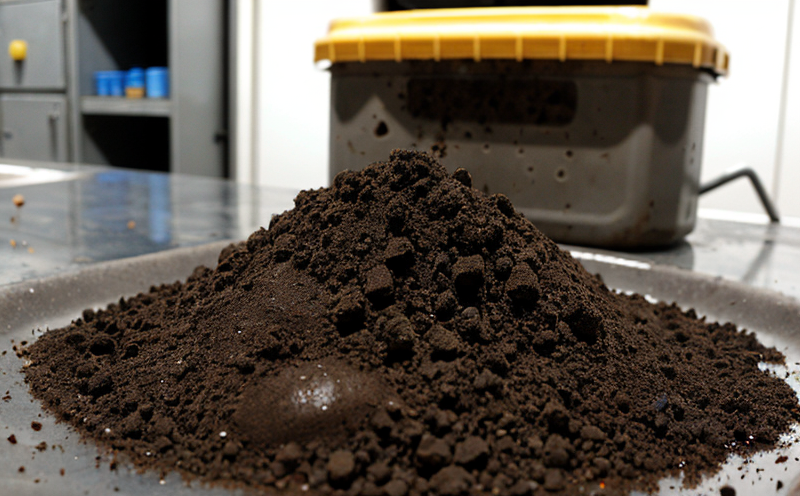EN 13130 Determination of Residues in Food Contact Plastics
The European Standard EN 13130 provides a method for determining the migration of additives, monomers, and other residues into food from plastic packaging. This standard is crucial for ensuring that materials used in contact with food meet stringent safety requirements as set by regulatory bodies such as the European Food Safety Authority (EFSA) and the European Commission.
Food contact plastics are a significant part of modern packaging solutions, but they must be rigorously tested to ensure they do not transfer harmful substances into the food. Compliance with EN 13130 is mandatory for manufacturers and suppliers of packaging materials in Europe. The method outlined in this standard has been widely adopted as it provides a reliable and consistent approach.
The testing process involves exposing the plastic sample to an artificial gastric juice solution under controlled conditions, simulating the environment that food might encounter during storage or consumption. This allows for the quantification of any potentially harmful residues that may leach from the packaging into the food. The results are then compared against limit values established by regulatory authorities.
Understanding the migration behavior of additives and monomers is critical in ensuring product safety. Residues such as phthalates, bisphenol A (BPA), or certain plasticizers can have adverse health effects if they migrate into food products. Therefore, thorough testing according to EN 13130 ensures that only safe materials are used in food packaging.
The methodology described in EN 13130 is comprehensive and includes detailed instructions for sample preparation, exposure conditions, analytical techniques, and evaluation criteria. This ensures that all stakeholders involved in the production, distribution, and use of food contact plastics can follow a standardized procedure.
Compliance with this standard not only protects consumer health but also enhances brand reputation by demonstrating commitment to quality and safety standards. For companies operating within the European Union or supplying products into it, adherence to EN 13130 is non-negotiable.
Scope and Methodology
| Parameter | Description |
|---|---|
| Type of Samples | Polymeric materials intended for use in contact with food. |
| Exposure Medium | Artificial gastric juice solution mimicking the environment during storage or consumption. |
| Temperature and Time | Conditions are set to simulate real-world scenarios, typically at 60°C for up to 48 hours. |
| Analytical Techniques | Instruments such as gas chromatography-mass spectrometry (GC-MS) or liquid chromatography-tandem mass spectrometry (LC-MS/MS). |
The process begins with precise sample preparation, ensuring that each specimen is representative of the material intended for use. Once prepared, samples are immersed in the gastric juice solution under carefully controlled conditions. After exposure, the extract is analyzed using advanced analytical techniques to identify and quantify any residues present.
Evaluation criteria involve comparing detected residues against established limit values specified by regulatory bodies like EFSA. Compliance with these limits ensures that the food contact plastics meet the necessary safety standards.
Eurolab Advantages
Eurolab offers specialized expertise and state-of-the-art facilities dedicated to conducting EN 13130 tests. Our team of experienced professionals ensures that every aspect of the testing process adheres strictly to the standard's requirements.
- Comprehensive Testing Capabilities: We have the equipment necessary for performing all aspects of EN 13130 testing, from sample preparation to final analysis.
- Accurate and Reliable Results: Our laboratories are equipped with high-precision instruments that provide accurate data every time.
- Compliance Assurance: By following the exact procedures outlined in EN 13130, we guarantee that your results will be accepted by regulatory bodies worldwide.
- Expert Guidance: Our consultants can offer advice on how to select appropriate materials and ensure compliance with all relevant standards.
- Fast Turnaround Times: We understand the importance of timely results in product development and quality assurance processes. Therefore, we strive to deliver accurate reports within industry-standard deadlines.
- Cost-Effective Solutions: Eurolab aims to provide comprehensive testing services at competitive rates without compromising on quality or accuracy.
Our commitment to excellence and our extensive experience make us the ideal partner for any organization seeking reliable EN 13130 compliance testing.
Environmental and Sustainability Contributions
- Reduction in Harmful Substances: By identifying and eliminating potentially harmful residues, EN 13130 helps reduce the environmental impact of food packaging.
- Promotion of Safe Products: Ensuring that only safe materials are used in contact with food contributes to overall public health and reduces waste associated with unsafe products.
- Encouragement of Sustainable Practices: Compliance with EN 13130 encourages manufacturers to adopt sustainable practices, including the use of safer alternatives wherever possible.
- Innovation in Packaging Materials: The standard drives innovation by encouraging the development of new materials that are both safe and environmentally friendly.
- Increased Consumer Confidence: When consumers know that their food has been packaged with compliant products, they feel more confident about purchasing these items.
The implementation of EN 13130 not only benefits the immediate environment but also promotes long-term sustainability by fostering a culture of safety and responsibility in packaging practices.





